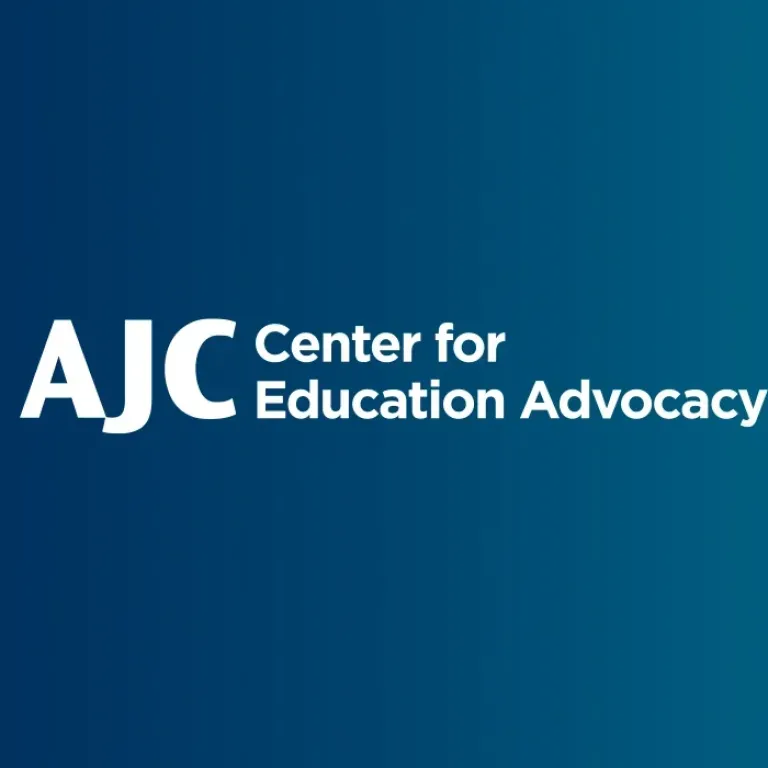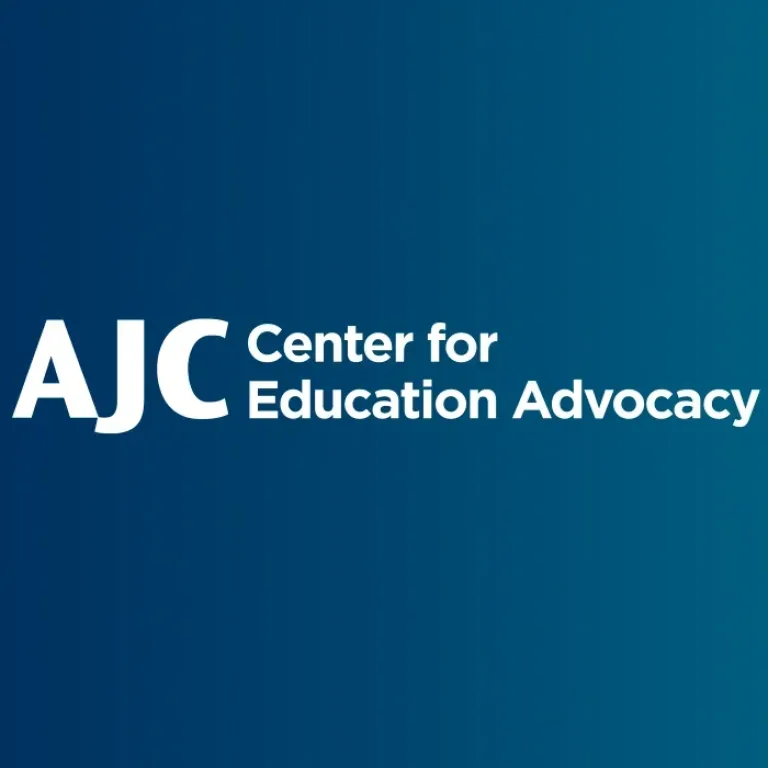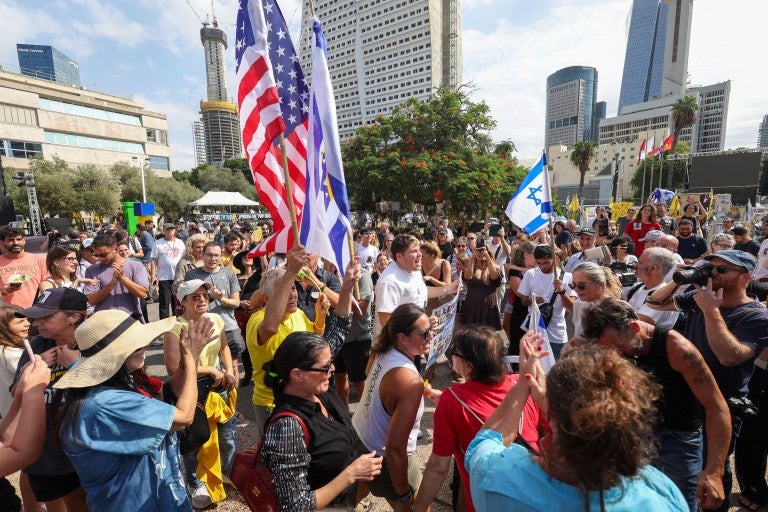American Jewish Committee (AJC), the global advocacy organization for the Jewish people, is offering guidance to K-12 school administrators on how to best prepare for the anniversary of October 7 in school settings by proactively anticipating the needs of Jewish students, ensuring safeguards and resources are in place for them, and troubleshooting potential problems that may arise.
AJC recognizes that every school community is different and has distinctive needs. We are here to help you address them. Please contact us to discuss how we can assist.
Background
Tuesday, October 7, 2025, marks the second anniversary of the October 7 terror attacks in Israel, in which 1,200 people were brutally murdered, and 254 were taken into Gaza as hostages by Hamas terrorists. At the time this document was written, 48 people still remain captive in Gaza, including 2 Americans. Of the 48, only 20 are presumed to be alive.
October 7 represents the deadliest terror incident in Israel’s history, in which not only Israeli Jews, but also Muslims, Christians, Hindus, Buddhists, Israeli Arabs, and people from over 40 countries, including 43 Americans, were targeted and killed.
For the worldwide Jewish community, October 7, 2023 also marks the most significant loss of Jewish life in one day since the Holocaust, and remains a painful open wound that may still directly impact Jewish students, faculty, and their families.
Awareness
Consider the impact of today’s environment on your Jewish students and faculty.
- The October 7 attacks occurred at the end of the 2023 Jewish fall holiday season on the holiday of Simchat Torah. In the fall of 2025, the Jewish holiday season begins with Rosh Hashanah on the evening of September 22 and runs through the evening of October 15, with the anniversary of October 7 falling during the holiday of Sukkot, which is known in Jewish liturgy as “the time of our joy.” The whiplash of the anniversary coming during a season of joy may deepen the emotional dissonance for Jewish students and families.
- Since October 7, 2023, Jews in the United States have faced a terrifying increase in violent and even deadly antisemitism. Synagogues and Jewish spaces now require heightened security, with armed guards becoming routine. For students attending High Holiday services, this police and security presence can create a stressful and frightening experience.
- Many Jewish students have faced increasingly hostile rhetoric online and even among classmates and faculty in their schools because of their real or perceived connection to Israel and Zionism. Some of that rhetoric has included deeply problematic messaging about October 7 that denies or minimizes the October 7 attacks or dehumanizes Israeli victims of October 7 (e.g., “no innocent Israelis”; tearing down or vandalism of hostage posters; denial of sexual assault committed against Israelis). It has also included attempts to reframe the violence and terror of October 7 as justified resistance, decolonization, or liberation. Language that minimizes or denies the impact of October 7, vilifies Israel and Zionism, or engages in victim-blaming for the atrocities committed on October 7 will resonate painfully for many Jewish students, especially when it appears in the school spaces that are so central to their lives.
- The State of Israel has designated the official day of mourning for 10/7 to be on the Hebrew calendar date of the 24th of Tishrei, which does not correspond to the same English date every year. Please note that this may mean some American Jewish communal commemorations will be scheduled to coincide with the Hebrew calendar date, which, in 2025, is October 16.
Action
Be prepared for activities or programs that may take place at your school, and anticipate the potential needs of your Jewish students and faculty:
- Inform relevant school staff, including principals, deans, and counselors, that Jewish students and faculty may require extra support on or around October 7. Plan ahead so that staff are ready to support the school’s Jewish community members that day.
- Provide Jewish students and faculty time and space to reflect and commemorate the October 7 attacks, such as a "drop-in" space during lunch or affinity group time.
- Ensure that no essential or required school events (such as Back to School Night or college guidance programs) are scheduled for the night of October 7, when many Jewish community members will be attending memorial programs.
- Be aware that student walkouts or protests against Israel on October 7 will be extremely hurtful, frightening, and upsetting to many of your Jewish students and community members. Such activity should be avoided at all costs on October 7.
- Recognize that Jewish parent affinity groups may want to create their own programming to memorialize October 7. If your school has such a group, be prepared to support those programs by offering school space after school hours and by ensuring that the appropriate school administrator(s) is/are present at any such program.
- Be attentive to the digital environment. Harassment and harmful rhetoric often spill over into school spaces through group chats, Instagram, TikTok, Discord, and other platforms connected to the school community. Administrators should proactively monitor these platforms in order to be aware and prepared to respond if Jewish students are targeted.
Communication
Different schools have different policies about issuing statements in response to national or international events. If your school issues statements, and you plan to issue a statement about the anniversary of October 7, or if you will be addressing your students or school community in some way about October 7, remember to do so with sensitivity and purpose. While recognizing that statements from the school may not directly impact the affected communities, schools can affirm their commitment to fostering a diverse yet unified community by emphasizing the shared identity of the school community, their core values, and the role of education in promoting critical thinking and curiosity.
- Avoid using contested or vague language that may unwittingly distort your messaging or dilute your support for Jewish students at this difficult time. Use accurate statistics whenever you describe the events of October 7 (see background above).
- Avoid incorrectly referring to those killed on October 7 as victims of a war, military incursion, or occupation, and avoid using phrases such as "cycle of violence" in any reference to the day. These designations detract from the horror of the terrorist attacks that specifically targeted innocent civilians, including babies and the elderly, as well as non-Israelis and non-Jews. Similarly, messaging about October 7 should avoid comparative accounts of Palestinian deaths from the subsequent war, as these casualties deserve acknowledgment on their own terms and should be addressed separately from messaging about the October 7 terror attacks.
AJC’s Center for Education Advocacy is your partner in fostering a deeper understanding of the Jewish people, combating antisemitism, and helping build a school environment resilient against all forms of hate. We’re here to help. Contact us!
To download a PDF of this information, click here.




